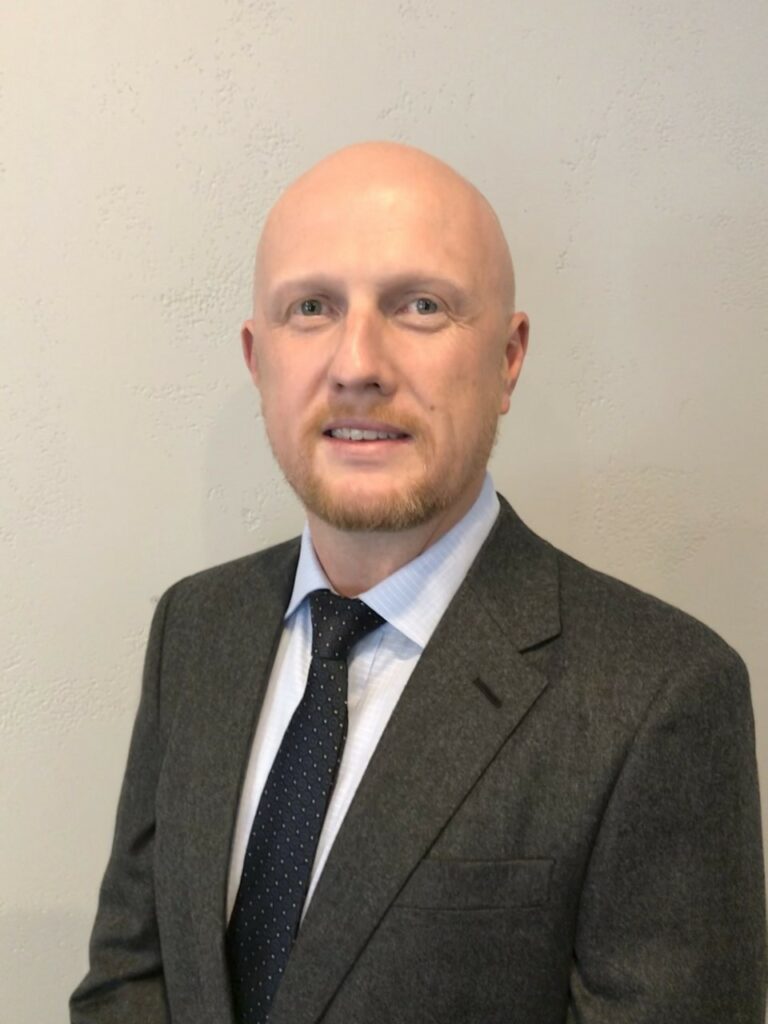Children comprise 25 per cent of the population and present a unique opportunity for researchers to provide more equitable health care, but how do we ethically and securely collect, examine and store pediatric data, and under what circumstances is it acceptable to keep using child health care data for research?

That is the basis behind Ian Stedman’s research as a co-investigator for a Canadian Institutes of Health Research (CIHR)-funded research project that aims to provide equitable child health care. Stedman is collaborating with Child Health Evaluative Scientist Alistair Johnson, Critical Care Physician Dr. Mjaye Mazwi and Bioethicist Melissa McCradden (all at SickKids), to develop a format with software that makes it easy to use data for research while protecting the identities of the children whose data is being used.
Stedman, an assistant professor at the Faculty of Liberal Arts & Professional Studies and an alumnus from Osgoode Hall School of Law, aims to develop parameters around a social license for reusing routinely collected pediatric health data to foster future research by addressing issues around privacy, cybersecurity and ethics, and enabling future research.
For Stedman, who was diagnosed with a rare disease called Muckle-Wells syndrome (MWS) in his 30s, the research has a personal motivation.
“During the first 18 years of my life I had close to 200 regular visits to my GP for the seven same symptoms, which I now know were associated with my diagnosis. Today, artificial intelligence (AI) technologies could have potentially diagnosed my disease by the eighth visit,” says Stedman.
MWS, which can include symptoms such as severe fever, rash and joint pain, is so rare that Stedman is the 12th person in Canada to be diagnosed. The 13th person to be diagnosed was his then one-year-old daughter, Lia (now nine). His daughter, in fact, was the impetus for Stedman, who decided to take paternity leave from his role at the Office of the Integrity Commissioner of Ontario when his daughter started displaying similar symptoms. He embarked on a journey through medical research before he came across the name of a one-in-a-million disorder that turned out to be the one.
Stedman left his career to pursue a master’s from the University of Toronto and a PhD in law from Osgoode. His doctoral supervisor was Lorne Sossin (former dean of Osgoode and now a judge on the Ontario Court of Appeal). He focused his PhD research on public sector accountability laws, while also working on various research projects related to the law, politics and policy of rare disease in Canada.
“Something compelled me into this space. It really got me thinking about what equity issues are not being addressed in health care,” he says.
Stedman’s career trajectory naturally led towards working with clinicians and scientists working in AI and data-driven health care. “There are many ethical and policy issues that need to be addressed,” says Stedman. “There’s a lot of conversation right now about mechanisms of accountability and what changes within the legal, policy and regulatory environments will be necessary to ensure AI advances in an equitable, legal and ethical way.”

Stedman currently sits as a member of the CIHR Institute for Genetics’ Instituted Advisory Board and serves as a legal member on SickKids’ Research Ethics Board. He’s also a member of York’s AI & Society Task Force.
Stedman and his colleague, Aviv Gaon (senior lecturer at the Harry Radzyner Law School, Reichman University (IDC Herzliya)), penned the first article to be published in a Canadian law journal about the varying challenges with regulating AI. Shining the spotlight at healthcare ethics is a natural convergence of Stedman’s personal and professional backgrounds. His latest research project is a collaboration with bioethicists, emergency room doctors at SickKids and critical care doctors and computer scientists. He hopes to develop a framework that legitimizes AI and data-driven health research.
“What’s unique about our public health care is that we have these academic centres at the University Hospital Network (UHN), Mount Sinai and SickKids, where revolutionary work is being undertaken but rarely commercialized. Getting this research out across provincial jurisdictions so the broader Canadian health care community can benefit will be a gamechanger,” says Stedman, adding, “I’m doing this for all the people who are falling in the gaps of the health care system. For people like my daughter, and the dads who can’t afford to take paternity leave to go and study medical research. That’s what my work is about – changing the conversation so we can better harness technology and health data to help all people.”


